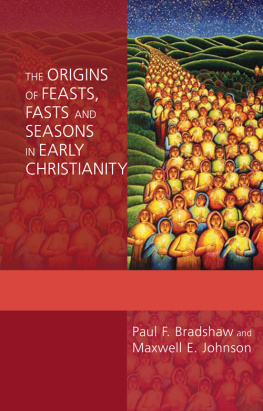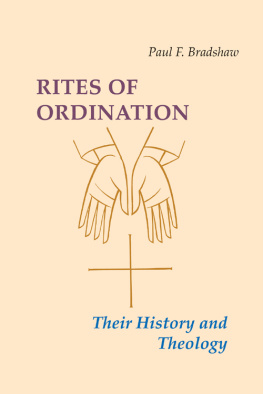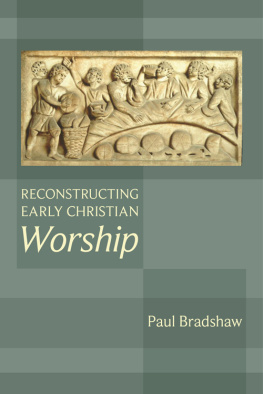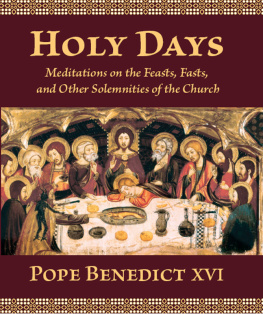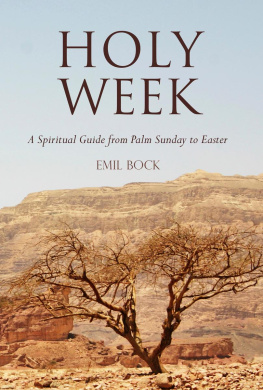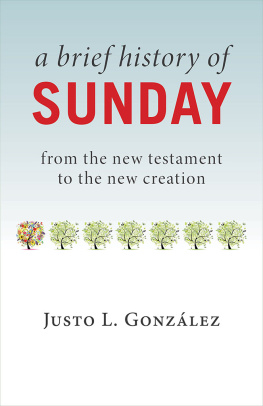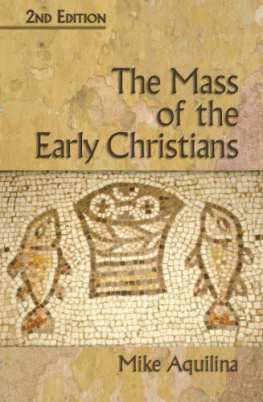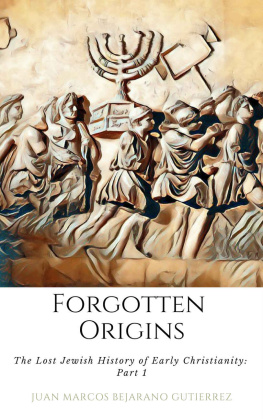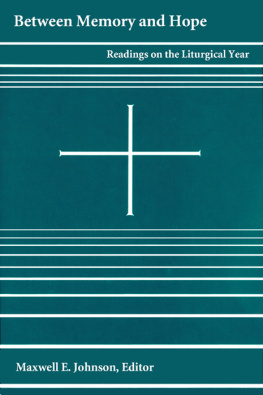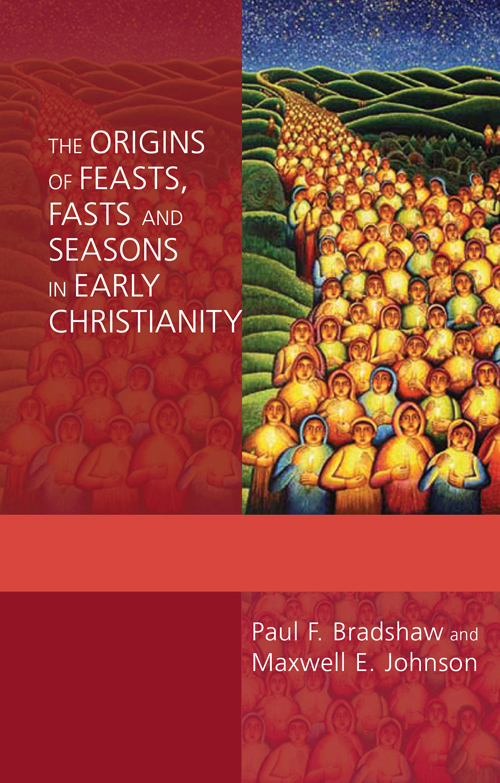
Founded in 1897, the Alcuin Club seeks to promote the study of Christian liturgy and worship in general with special reference to worship in the Anglican Communion. The Club has published a series of annual Collections, including A Companion to Common Worship , volumes 1 and 2, edited by Paul F. Bradshaw, a new edition of the classic text Christian Prayer through the Centuries , by Joseph Jungmann (SPCK 2007) and most recently The Worship Mall: Contemporary responses to contemporary culture , by Bryan D. Spinks (SPCK 2010). The Alcuin Liturgy Guide series aims to address the theology and practice of worship, and includes The Use of Symbols in Worship , edited by Christopher Irvine, and two volumes covering the celebration of the Christian Year: Celebrating Christs Appearing: Advent to Christmas , and Celebrating Christs Victory: Ash Wednesday to Trinity , both by Benjamin Gordon-Taylor and Simon Jones. The Club works in partnership with GROW in the publication of the Joint Liturgical Study series, with two studies being published each year.
Members of the Club receive publications of the current year free and others at a reduced rate. The President of the Club is the Rt Revd Michael Perham, its Chairman is the Revd Canon Dr Donald Gray CBE, and the Secretary is the Revd Dr Gordon Jeanes. For details of membership and the annual subscription, contact The Alcuin Club, 5 Saffron Street, Royston, SG8 9TR, or email: alcuinclub@gmail.com
Visit the Alcuin Club website at: www.alcuinclub.org.uk

Published in Great Britain in 2011 by
Society for Promoting Christian Knowledge
36 Causton Street
London SW1P 4ST
www.spckpublishing.co.uk
and in the United States of America and Canada in 2011 by
Liturgical Press
Collegeville, MN 56321
www.litpress.org
Copyright Paul F. Bradshaw and Maxwell E. Johnson 2011
All rights reserved. No part of this book may be reproduced or transmitted in any form or by any means, electronic or mechanical, including photocopying, recording, or by any information storage and retrieval system, without permission in writing from the publishers.
SPCK and Liturgical Press do not necessarily endorse the individual views contained in their publications.
The author and publishers have made every effort to ensure that the external website and email addresses included in this book are correct and up to date at the time of going to press. The author and publishers are not responsible for the content, quality or continuing accessibility of the sites.
Scripture quotations are taken from the Revised Standard Version of the Bible, copyright 1946, 1952 and 1971 by the Division of Christian Education of the National Council of the Churches of Christ in the USA. Used by permission. All rights reserved.
British Library Cataloguing-in-Publication Data
A catalogue record for this book is available from the British Library
SPCK ISBN 9780281060542
E-ISBN 9780281065974
United States Library of Congress Cataloging-in-Publication Data is on file at the Library of Congress, Washington, DC
Liturgical Press ISBN 9780814662441
10 9 8 7 6 5 4 3 2 1
Typeset by Kenneth Burnley, Wirral, Cheshire
eBook by Graphicraft Limited, Hong Kong
In memoriam
Thomas Julian Talley, 19242005
Contents
The authors gratefully acknowledge the permission granted by the following copyright holders to reproduce extracts from translations of ancient sources contained in the works listed. Where not otherwise attributed in the notes, translations of other primary sources are by the authors.
Every effort has been made to seek permission to use copyright material reproduced in this book. The publisher apologizes for those cases where permission might not have been sought and, if notified, will formally seek permission at the earliest opportunity.
Thomas J. Talley, The Origins of the Liturgical Year . Copyright 1991 by The Order of Saint Benedict, Inc. Published by Liturgical Press, Collegeville, Minnesota. Reprinted with permission.
Raniero Cantalamessa, Easter in the Early Church (Collegeville: The Liturgical Press 1993). Reprinted with permission of the author.
Martin Connell, The Origins and Evolution of Advent in the West, Kilian McDonnell, The Marian Liturgical Tradition and Gabriele Winkler, The Appearance of Light at the Baptism of Jesus and the Origins of the Feast of the Epiphany in Maxwell E. Johnson (ed.), Between Memory and Hope: Readings on the Liturgical Year . Copyright 2000 by The Order of Saint Benedict, Inc. Published by Liturgical Press, Collegeville, Minnesota. Used with permission.
Ephrem the Syrian: Hymns , translated and introduced by Kathleen E. McVey. Copyright 1989 by Kathleen E. McVey. Paulist Press, Inc., Mahwah, NJ. Reprinted with permission of Paulist Press, Inc.
Sebastian Brock, Mary in Syriac Tradition in A. Stacpoole (ed.), Marys Place in Christian Dialogue (Wilton: Morehouse-Barlow 1982). Reprinted with permission of the author.
ACC | Alcuin Club Collections |
ALW | Archiv fr Liturgiewissenschaft |
ANF | A. Cleveland Coxe (ed.), The Ante-Nicene Fathers (New York: Christian Literature Company 188596) |
BCE | Before the Common Era |
Cantalamessa | Raniero Cantalamessa, Easter in the Early Church (Collegeville: The Liturgical Press 1993) |
CE | Common Era |
DBL | E. C. Whitaker, Documents of the Baptismal Liturgy , revised and expanded by Maxwell E. Johnson, ACC 79 (London: SPCK 2003) |
Ep. | Epistula/Epistulae |
ET | English translation |
JECS | Journal of Early Christian Studies |
NPNF | Philip Schaff and Henry Wace (eds), A Select Library of Nicene and Post-Nicene Fathers of the Christian Church (Edinburgh: T. & T. Clark 18861900) |
OCA | Orientalia Christiana Analecta |
OCP | Orientalia Christiana Periodica |
PG | J.-P. Migne (ed.), Patrologia Graeca (Paris 185766) |
PL | J.-P. Migne (ed.), Patrologia Latina (Paris 187890) |
QL | Questions liturgiques |
SL | Studia Liturgica |
SP | Studia Patristica |
VC | Vigiliae Christianae |
The reader might well have expected this book to be titled The Origins of the Liturgical Year or something similar, just as was Thomas Talleys work, Christians in antiquity did not view the various festivals, fasts and seasons that they experienced through each year as forming a unity, a single entity, and indeed those events themselves did not emerge in any planned or co-ordinated fashion but instead as a number of entirely unrelated cycles, with the result that they tended to overlap or conflict with one another.
The fundamental cycle was that of the seven-day week, which was taken over from Judaism by the first Christians but came to be centred on the Lords day rather than the Sabbath and with different days of the week designated for fasting from those customary among Jews, as the early Church sought to establish its own independent identity. As we shall show, however, the transition from Sabbath keeping to Sunday worship may have been slower than most scholars have previously supposed and to have left some remnants of Sabbath observance in later Christianity, even if the notion of resting on the Sabbath was firmly repudiated.

